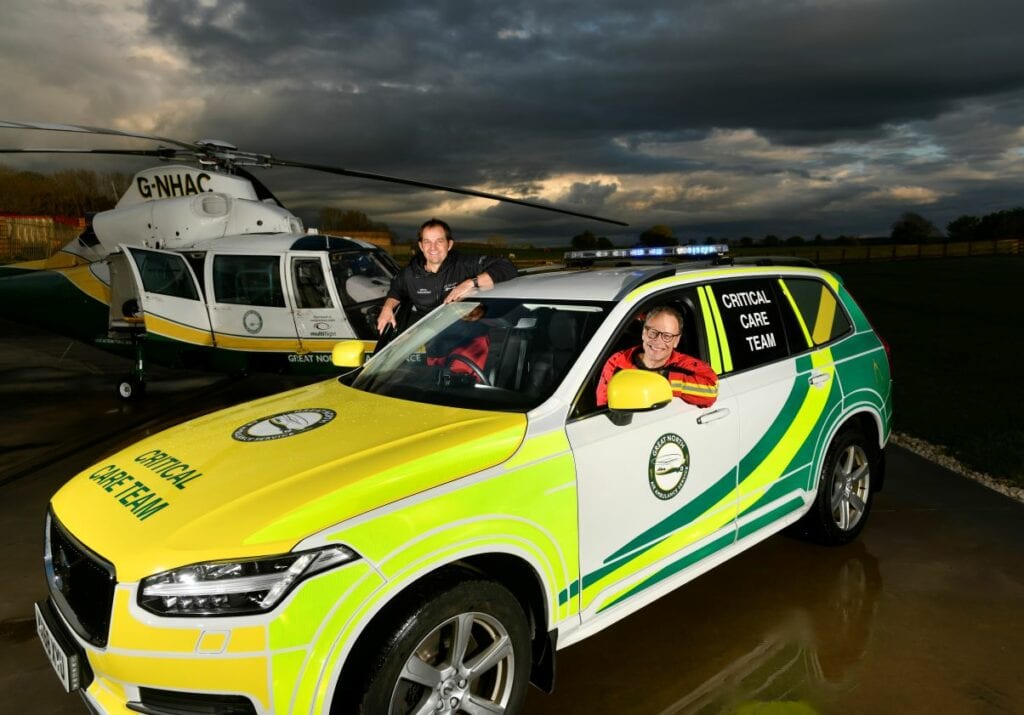
A critically ill hospital patient who needed treatment at a specialist centre overnight has been transferred by air ambulance for the first time.
The new service, which will run on Friday and Saturday nights, is to transfer the sickest patients from Carlisle’s Cumberland Infirmary and Whitehaven’s West Cumberland Hospital to specialist units around the North East and North West by air ambulance.
The Great North Air Ambulance Service launched the new weekend service on Friday and had its first call out on Saturday.
The patient had suffered multiple injuries and required a time critical transfer between the Cumberland Infirmary and Newcastle’s Royal Victoria Infirmary .
Critically ill patients who are already in hospital across Cumbria and could potentially die without a rapid transfer to a major trauma centre, will benefit from the service which provides advanced care interventions by GNAAS throughout the journey.
The service in Cumbria to help bridge the gap between the hospitals in the region and major trauma centres.
Although the service is currently only run across weekends, GNAAS is putting infrastructure in place to see that is available seven nights a week in the near future in line with its 24/7 strategy.
Lee Salmon is head of operations for GNAAS in the North West and works across Cumbria as a paramedic from the charity’s base in Langwathby.
Mr Salmon said: “Essentially, we are transporting patients from the trauma unit in Carlisle and Whitehaven to major trauma centres like the Royal Victoria Infirmary in Newcastle and James Cook University Hospital in Middlesbrough.
“Historically, we haven’t been able to do this, and it has meant that patients who have life-threatening injuries, could potentially have to wait to receive the urgent advanced critical care they need.”
Dr John Ferris is an emergency medicine consultant and clinical lead for retrieval medicine at North Cumbria Integrated NHS Trust. He also flies with GNAAS as a consultant in pre-hospital critical care.
Dr Ferris said: “I could see this unique problem from both aspects of hospital teams and the ambulance service at night. It was clear to me we could offer patients a better chance by our team at GNAAS getting involved in their care early on.”
The project is a collaboration between GNAAS and North Cumbria’s emergency medicine and critical care hospital teams within the NHS trust.
The organisations will work side by side to meet the needs of the most seriously injured or ill patients in Cumbria at that moment in time.
Mr Salmon said: “The service has been two years in the making. Due to the rurality of Cumbria, the population haven’t had access to the same level of service as those near major trauma centres, so it is a step in the right direction.”
GNAAS’ chief executive, David Stockon, said: “The introduction of this service is a vital addition to the medical network in Cumbria and we are so proud it has now launched and already making a real difference to lives of people in Cumbria.”








